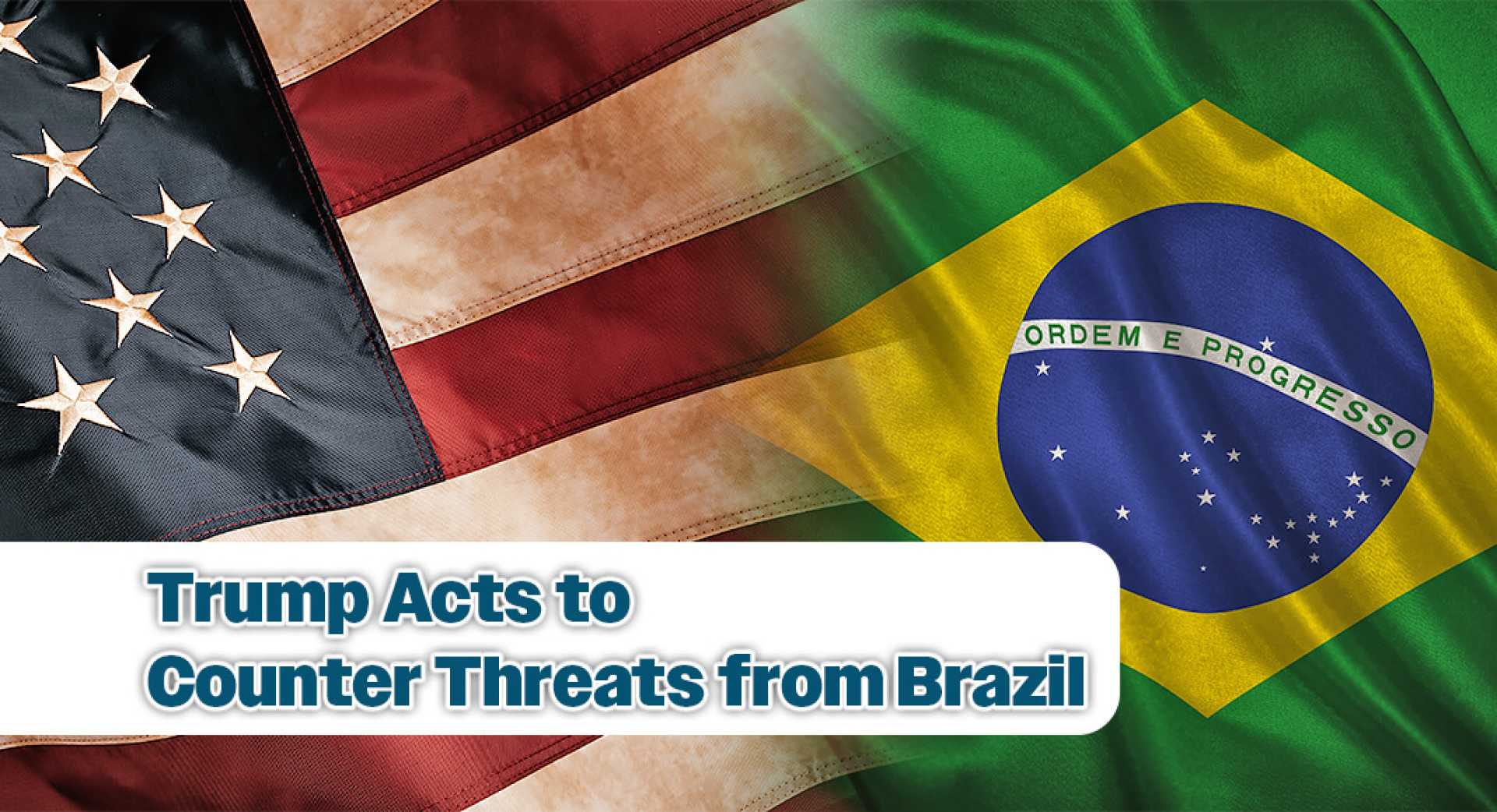Politics
Trump Implements 40% Tariff on Brazilian Imports Amid National Security Concerns

WASHINGTON, D.C. — President Donald J. Trump signed an executive order on July 30, 2025, imposing a 40% tariff on imports from Brazil, citing national security threats. The order declares a national emergency due to recent actions by the Brazilian government that the U.S. believes undermine free expression and violate human rights.
Trump’s order explicitly states that certain policies and actions by Brazilian officials threaten U.S. foreign policy and economic interests, including the prosecution of former President Jair Bolsonaro for alleged crimes related to his 2022 campaign. The president accused the Brazilian government of political persecution and restricting free speech, asserting these actions create an environment hostile to American businesses and citizens.
“Recent policies, practices, and actions of the Government of Brazil threaten the national security, foreign policy, and economy of the United States,” Trump said in the order. He pointed out that Brazilian officials have attempted to compel U.S. tech platforms to censor American users, which he claims infringes upon First Amendment rights.
The executive order details the ways in which Brazilian Supreme Court Justice Alexandre de Moraes has allegedly abused his powers, targeting political opponents and suppressing dissent. Trump highlighted that de Moraes has sanctioned police raids and arrests without due process, further eroding the rule of law in Brazil.
As part of the tariffs, the U.S. Customs and Border Protection agency is authorized to implement the new duty rate effectively one week after the order’s signing. Exemptions exist for certain goods loaded on vessels prior to the order’s announcement, maintaining some trade continuity.
In the wake of these tariffs, Trump reiterated his commitment to safeguarding American free speech and holding accountable foreign entities that threaten U.S. interests. “This action is necessary to protect our economic and national security,” he declared.
The move follows growing tensions between the two countries, particularly surrounding Brazil’s treatment of Bolsonaro. Critics of the Brazilian government view the situation as a politically charged prosecution influenced by current President Luiz Inácio Lula da Silva‘s administration, which Trump’s administration views as a significant concern for upcoming elections in Brazil.
Trump has positioned these tariffs as part of broader efforts to ensure that American companies are not forced to comply with censorship and other coercive practices overseas. The situation remains dynamic, with potential retaliatory measures from Brazil expected in response to the executive order.












